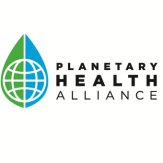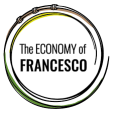The Justice, Peace and the Care of Creation Movement (Ecumenical - initated by the WCC)
"In all her being and actions, the Church is called to promote the integral development of the human person in the light of the Gospel. This development takes place by attending to the inestimable goods of justice, peace, and the care of creation. The Successor of the Apostle Peter, in his work of affirming these values, is continuously adapting the institutions which collaborate with him, so that they may better meet the needs of the men and women whom they are called to serve."
Pope Francis
APOSTOLIC LETTER Dicastery for promoting Integral Human Development (August 2016)
JUSTICE, PEACE AND THE INTEGRITY OF CREATION
Guided by a vision of Earth as Home, a life-centered form of ethics, and a firm commitment to economic justice, the JPC movements runs a variety of programs concerning the environment, women, youth, racism, Indigenous Peoples, people with disabilities, globalization, and peace. The Ecumenical Earth Program promotes a vision of the world based on the Christian commitment to the oikoumene, which it variously defines as the diverse unity of the whole inhabited earth.
“Justice, peace and the integrity of creation” (JPIC) is shorthand for a fuller statement: “To engage member churches in a conciliar process of mutual commitment (covenant) to justice, peace and the integrity of creation should be a priority for World Council programmes.” Originally intended as a programme priority for the WCC by its Vancouver assembly (1983) and addressed to its member churches, it was subsequently expanded to include churches that are not members of the WCC, regional and national ecumenical organizations and all other movements committed to these issues (D. PREMAN NILES 2003)
Partner Organizations are 350 WCC member churches worldwide, regional ecumenical organizations on all continents, National Councils of Churches, Church-related development agencies and Environmental NGOs and social movement organizations.
Milestones
The 1. European Ecumenical Assembly PEACE WITH JUSTICE
The European Ecumenical Assembly PEACE WITH JUSTICE, held in Basel from 15 to 21 May 1989 has proved to be an important landmark in ecumenical co-operation. The decision to hold the European Assembly PEACE WITH JUSTICE was taken at the CEC General Assembly in 1986. We, almost 700 delegates from the 120 member churches of the Conference of European Churches (CEC) and the 25 Bishops' Conferences of the Council of European Bishops Conferences (CCEE) rejoice in the wide representation from the churches and peoples of Europe. At the same time, we note with regret that no Christians residing in Albania were able to attend the Assembly. The decision of CEC followed the call of the Vancouver 1983 General Assembly of the World Council of Churches to its member churches to enter now into a "conciliar process of mutual commitment (covenant) for Justice, Peace and the Integrity of Creation". Most of the member churches of CEC understand the Basel Assembly also to be a contribution in this "conciliar process". Other churches taking part in the Assembly prefer not to use the term "conciliar process". But all the churches represented in Basel agree that they are committed to an ecumenical process for Justice, Peace and the Integrity of Creation.
The 2. European Ecumenical Assembly: "Reconciliation: a gift of God and a source of new life"
Representatives from all European Christian Churches gather in Graz, Austria on 23. - 29. June under the motto "Reconciliation: a gift of God and a source of new life". As well as the 700 delegates, a further 10,000 participants are expected. The assembly is being organised by the Conference of European Churches (KEK) and the Council of the European Bishops' Conference (CCEE). About 50 German delegates are being sent by the German member churches of the KEK / CCEE. 118 member churches from all the countries in Europe belong to the KEK, and the CCEE is composed of the 33 national and regional Catholic Bishops' Conferences in Europe. The first European Ecumenical Assembly took place in Basel in 1989. Numerous organisations, networks and groups from all over Europe will discuss the Assembly's motto in six theme areas. These concern the reconciliation between Churches, cultures, peoples and world religions. Also environmental subjects such as biological diversity and climatic changes will be handled, and a dialogue with other religions and cultures will be sought. It is planned that the Assembly will ratify a final statement. The main speakers at the event were the Russian Orthodox Patriarch Alexij II and the Catholicos of the Armenian Apostolic Church, Karekin I. Among those invited is the head of the Anglican Church, Archbishop George Carey.
The 3. European Ecumenical Assembly:The light of Christ shines upon all – hope for renewal and unity in Europe.
The EEA3 builds on two other assemblies, which took place in Basel (Switzerland) in 1989 and in Graz (Austria) in 1997. It roots in the Charta Oecumenica signed in Strasbourg in 2001. The chosen theme for this meeting is: The light of Christ shines upon all – hope for renewal and unity in Europe. This put the emphasis on Christ (John 8;12) and refer to the symbol of light so important in the eastern and western Christian tradition. The subtitle has for object to emphasize the part that Christianity could play in Europe actually. First stage: meeting in Rome from January 24th to 27th 2006; 160 Church delegates, from Episcopalians Catholics Conferences, from authority or ecumenical movements and from ecclesiastic’s communities were present. The second stage enclose nationals and/or regional meetings in the second half-year in 2006 and the beginning of 2007. This meeting’s organization will be attended by Churches and Conferences delegates of the welcoming country or area. The third stage
will take place in Germany in Wittenberg-Lutherstadt, in January 2007 in the same way as it was in Rome. The fourth stage was the Sibiu’s meeting from the 4th to the 8th of September 2007 gathering 3000 Churches and Catholics Episcopalians delegates of Europe.
World Convocation on Justice, Peace and the Integrity of Creation , 1990
A World Council of Churches Convocation on "Justice, Peace and the Integrity of Creation" was held in Seoul, Republic of Korea, in March 1990 "to engage member churches in a conciliar process of mutual commitment to justice, peace and the integrity of creation." A set of ten affirmations was approved by the convocation for a process of covenanting:
- We affirm that all forms of human power and authority are subject to God and accountable to people. This means the right of people to full participation. In Christ, God decisively revealed the meaning of power as compassionate love that prevails over the forces of death.
- We affirm God's preferential option for the poor and state that as Christians our duty is to embrace God's action in the struggles of the poor in the liberation of us all.
- We affirm that people of every race, caste, and ethnic group are of equal value. In the very diversity of their cultures and traditions, they reflect the rich plurality of God's creation.
- We affirm the creative power given to women to stand for life whenever there is death. In Jesus' community women find acceptance and dignity, and with them he shared the imperative to carry the good news.
- We affirm that access to truth and education, information, and means of communication are basic human rights. All people have the right to be educated, to tell their own stories, to speak their own convictions and beliefs, to be heard by others, and to have the power to distinguish truth from falsehood.
- We affirm the full meaning of God's peace. We are called to seek every possible means of establishing justice, achieving peace, and solving conflicts by active nonviolence.
- We affirm that the world, as God's handiwork, has its own inherent integrity; that land, waters, air, forests, mountains, and all creatures, including humanity, are "good" in God's sight. The integrity of creation has a social aspect, which we recognize as peace with justice, and an ecological aspect, which we recognize in the self-renewing, sustainable character of natural ecosystems.
- We affirm that the land belongs to God. Human use of land and waters should release the earth to replenish regularly its life-giving power, protecting its integrity and providing spaces for its creatures.
- We affirm the dignity of children that derives from their particular vulnerability and need for nurturing love; the creative and sacrificial role that the young people are playing in building a new society, recognizing their right to have a prophetic voice in the structures that affect their life and their community; the rights and needs of the younger generation as basic for establishing educational and developmental priorities.
- We affirm that human rights are God-given and that their promotion and protection are essential for freedom, justice, and peace. To protect and defend human rights, an independent judicial system is necessary.
NOW IS THE TIME for the ecumenical movement to articulate its vision of all people living on earth and caring for creation as a family where each member has the same right to wholeness of life. While this vision is spiritual in nature, it must be expressed in concrete action. On the basis of our spiritual experience here in Seoul we have committed ourselves to work for:
- a just economic order and for liberation from the foreign debt bondage,
- the true security of all nations and peoples and for a culture of non-violence;
- building a culture that can live in harmony with creation's integrity and for preserving the gift of the earth's atmosphere;
- the eradication of racism and discrimination on all levels for all people, and for the dismantling of patterns of behaviour that perpetuate the sin of racism.
History
In the 1970s, the WCC began to recognize the connections between justice, peace, and ecological sustainability. At the Vancouver Assembly in 1983, the WCC encouraged member churches to publicly commit to addressing environmental concerns as part of a common effort to promote Justice, Peace, and the Integrity of Creation, which became known as the JPIC process. In 1988, the WCC launched its Climate Change Program to promote the transformation of socioeconomic structures and personal lifestyle choices that contribute to global warming. In 1990, the WCC sponsored the World Convocation on Justice, Peace, and the Integrity of Creation in Seoul, Korea. Climate Change was at the center of one of four covenants at the Seoul convocation. At the Canberra Assembly in 1991 the WCC strongly affirmed the JPIC process, and a Justice, Peace, and Creation Unit was formed. That same year, the WCC initiated its Theology of Life Study, which drew on the experiences of twenty-two local groups from around the world, each reflecting on one of the ten affirmations made at the 1990 World Convocation on Justice, Peace, and the Integrity of Creation. The purpose of Study was to ground WCC theology more firmly in the lived experiences of local communities around the globe. The WCC strongly engaged with the preparatory process and the follow-up to the 1992 United Nations Conference on Environment and Development (UNCED) summit in Rio de Janeiro. It participated in all of the sessions of the United Nations (UN) Commission on Sustainable Development and the UN Framework Convention on Climate Change (UNFCCC). The WCC regularly addressed the delegates to the UNFCCC and organized seminars and worship services accompanying the events. In 1995, the WCC presented a petition with approximately 500,000 signatures to the UNFCCC in Bonn. In 1997, the coordinator of the WCC Climate Change Program, David Hallman, delivered a “justice statement” to a gathering of senior governmental officials at the summit on climate change in Kyoto, Japan. The current JPC team was formed during the restructuring of the WCC after the Harare Assembly in 1998. In 1999, issue sixteen of Echoes, published by the JPC team, was entitled, “The Earth as Mother,” and featured articles relating to the environment and Indigenous peoples in various parts of the globe. The WCC has also published study documents and books on issues related to climate change and sustainable development.
Source: November 2003: "JUSTICE, PEACE AND THE INTEGRITY OF CREATION". Author: D. PREMAN NILES)
Ut unum sint! The call for Christian unity made by the Second Vatican Ecumenical Council with such impassioned commitment is finding an ever greater echo in the hearts of believers, especially as the Year 2000 approaches, a year which Christians will celebrate as a sacred Jubilee, the commemoration of the Incarnation of the Son of God, who became man in order to save humanity.
UT UNUM SINT.pdf
PDF-Dokument [427.2 KB]








